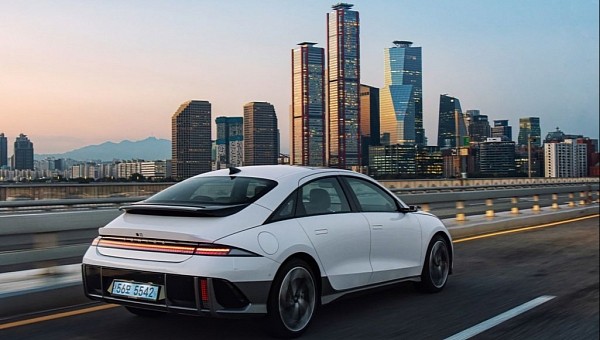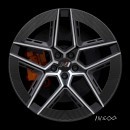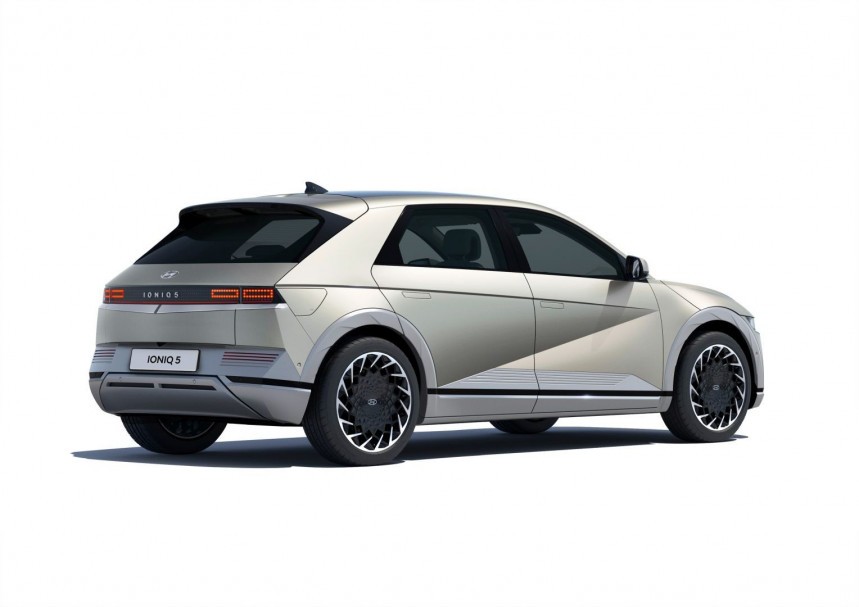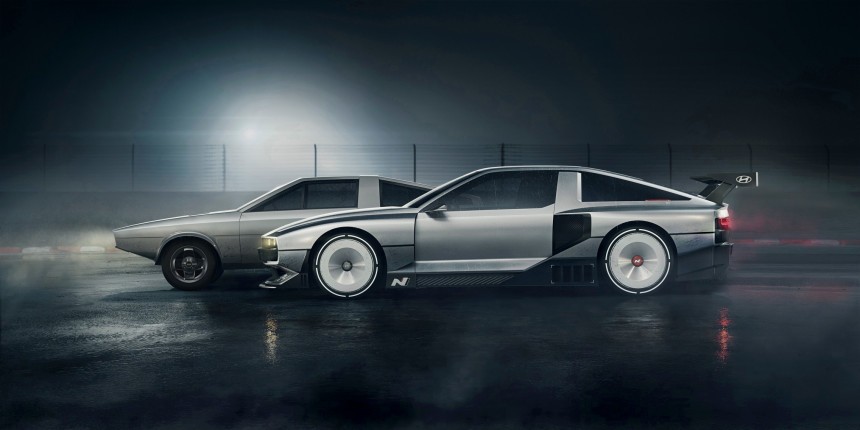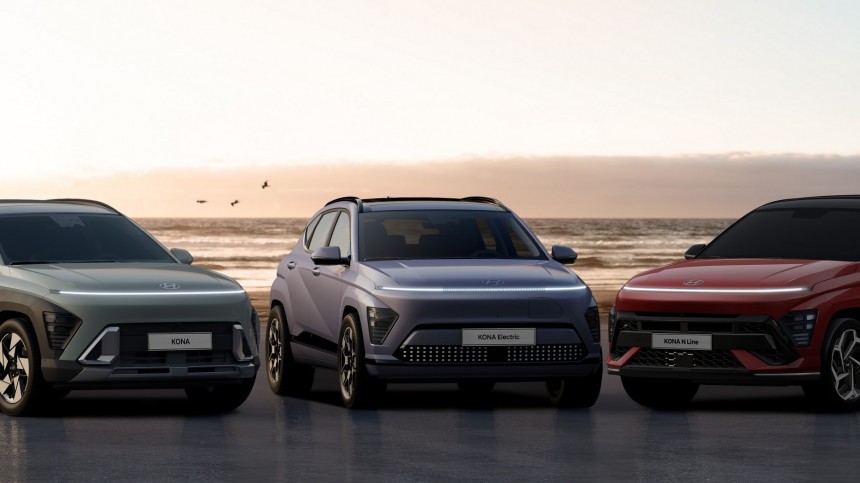Even though 2022 came with challenges for the automotive industry, such as supply chain shortages, many automakers have broken new ground regarding vehicle sales. One such example is Hyundai – the brand announced a record-breaking market performance in Europe in 2022.
Hyundai sold a total of 3.94 million units across the globe in 2022, a 1.4% increase compared to the previous year. 2022 European sales also experienced a minor growth – 518,566 units were sold, marking a 0.5% increase over 2021, and the company achieved a 4.6% market share in Europe. Hyundai’s “G5” markets, Spain, Germany, Italy, France, and the UK, made the feat possible. Let me tell you more about the stats for each of these countries.
About 4% of all cars sold in Germany were Hyundai models, which accounted for 105,074 new vehicle registrations in the country. Regarding electrified vehicles, Hyundai was ranked third in the market.
Hyundai took up a record market share of 7.3% in Spain, amounting to 59,504 newly registered vehicles. The brand achieved a market share of 3.1% in Italy, with 41,017 brand-new models sold. Then, we have France, where Hyundai obtained the same 3.1% market share, only it had more sales, 44,106, to be specific.
And last, there’s the UK, where Hyundai experienced significant success, perhaps the best out of all European markets. The company sold 80,419 units; that's a 15% increase compared to 2021. The sales represented a 5% market share, a record for the UK.
As we’ve all seen, the global demand for EVs is continuing to grow, and this trend is reflected in Hyundai’s performance, as it experienced a 19% rise in sales of zero-emission vehicles. Hyundai is looking forward to a zero-emission mobility future as part of its vision of “Progress for Humanity.” Sales for its EVs and electrified models are higher than ever before, with more than 16% of units sold featuring a zero-emission powertrain. The hybrid range consisting of PHEVs (Plug-In Hybrid Vehicles) and HEVs (Hybrid Electric Vehicles) amounted to 39.8% of the total vehicle sales.
Last year was the first full year of sales for its sub-brand, Ioniq, and the results were not bad at all, to say the least. The first model in the new range was the Ioniq 5, and Hyundai managed to sell 38,970 units worldwide. The EV received numerous awards from all over the world, such as “World Electric Vehicle of the Year,” “World Car Design of the Year,” or “World Car of the Year.”
But Hyundai isn’t stopping there – keen to continue the already successful Ioniq range, the automaker announced the brand-new Ioniq 6 Electrified Streamliner last year. Its production began late last year, and the BEV is expected to reach dealers starting in the first quarter of 2023. The Ioniq range, Ioniq 5 and Ioniq 6 combined, registered global sales of over 100,000 units in 2022.
Hyundai also unveiled its vision for the future of its performance vehicles lineup, Hyundai N, in 2022. It was showcased via the RN22e and the N Vision 74 models. The brand describes them as “rolling labs” featuring advanced technology planned to be used in upcoming production models.
The RN22e boasts Ioniq 6’s streamlined body styling and makes full use of Hyundai’s Electric-Global Modular Platform (E-GMP). Moreover, the N Vision 74 utilizes high-performance hybrid fuel cell technology housed in a body inspired by the 1974 Hyundai Pony Coupe Concept and the 2015 Hyundai N 2025 Vision Gran Turismo. The new vehicles represent Hyundai’s bid to become a leader in a zero-emission future.
Most of the vehicles meant for the European market are manufactured locally – over 70% of the units are made at Hyundai’s HMMC and HAOS plants in the Czech Republic and Turkey, respectively. The brand’s production process reflects its zero-emission mobility vision: last year, HMMC became Hyundai’s first factory to acquire 100% renewable energy through renewable energy certificates. There, more than 350,000 vehicles are produced annually.
The brand expects the momentum garnered so far to continue through 2023, especially when it comes to EVs. Hyundai N will introduce its first all-electric model, the Ioniq 5 N. The way I see it, it's a solution for those looking for a zero-emission vehicle that can still provide high performance.
Hyundai will also launch the second-generation Kona family, led by the brand-new Kona Electric. Three other variants will be available, ICE, HEV, and N Line, and each will feature unique driver experience and styling, although they are built on the same architecture. That way, the brand can cater to customers with different needs.
Michael Cole, the President and CEO of Hyundai Motor Europe, declared the company aims to sell 4.32 million units in overseas markets this year and believes the customer-centric approach, as well as the new line-up, will enable European sales to make a substantial contribution to this target.
About 4% of all cars sold in Germany were Hyundai models, which accounted for 105,074 new vehicle registrations in the country. Regarding electrified vehicles, Hyundai was ranked third in the market.
Hyundai took up a record market share of 7.3% in Spain, amounting to 59,504 newly registered vehicles. The brand achieved a market share of 3.1% in Italy, with 41,017 brand-new models sold. Then, we have France, where Hyundai obtained the same 3.1% market share, only it had more sales, 44,106, to be specific.
And last, there’s the UK, where Hyundai experienced significant success, perhaps the best out of all European markets. The company sold 80,419 units; that's a 15% increase compared to 2021. The sales represented a 5% market share, a record for the UK.
Last year was the first full year of sales for its sub-brand, Ioniq, and the results were not bad at all, to say the least. The first model in the new range was the Ioniq 5, and Hyundai managed to sell 38,970 units worldwide. The EV received numerous awards from all over the world, such as “World Electric Vehicle of the Year,” “World Car Design of the Year,” or “World Car of the Year.”
But Hyundai isn’t stopping there – keen to continue the already successful Ioniq range, the automaker announced the brand-new Ioniq 6 Electrified Streamliner last year. Its production began late last year, and the BEV is expected to reach dealers starting in the first quarter of 2023. The Ioniq range, Ioniq 5 and Ioniq 6 combined, registered global sales of over 100,000 units in 2022.
Hyundai also unveiled its vision for the future of its performance vehicles lineup, Hyundai N, in 2022. It was showcased via the RN22e and the N Vision 74 models. The brand describes them as “rolling labs” featuring advanced technology planned to be used in upcoming production models.
Most of the vehicles meant for the European market are manufactured locally – over 70% of the units are made at Hyundai’s HMMC and HAOS plants in the Czech Republic and Turkey, respectively. The brand’s production process reflects its zero-emission mobility vision: last year, HMMC became Hyundai’s first factory to acquire 100% renewable energy through renewable energy certificates. There, more than 350,000 vehicles are produced annually.
The brand expects the momentum garnered so far to continue through 2023, especially when it comes to EVs. Hyundai N will introduce its first all-electric model, the Ioniq 5 N. The way I see it, it's a solution for those looking for a zero-emission vehicle that can still provide high performance.
Hyundai will also launch the second-generation Kona family, led by the brand-new Kona Electric. Three other variants will be available, ICE, HEV, and N Line, and each will feature unique driver experience and styling, although they are built on the same architecture. That way, the brand can cater to customers with different needs.
